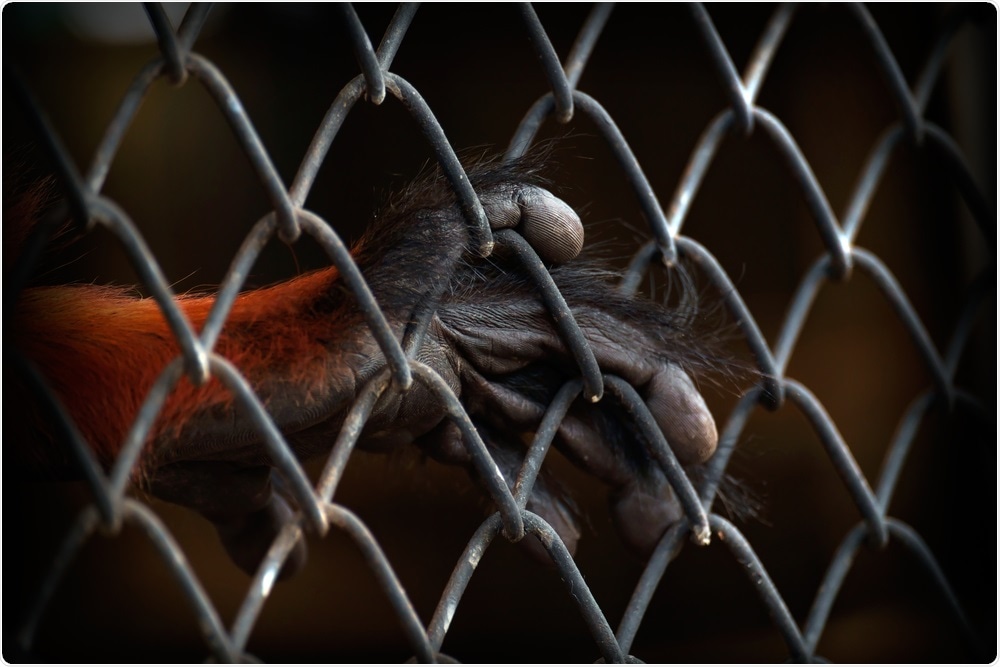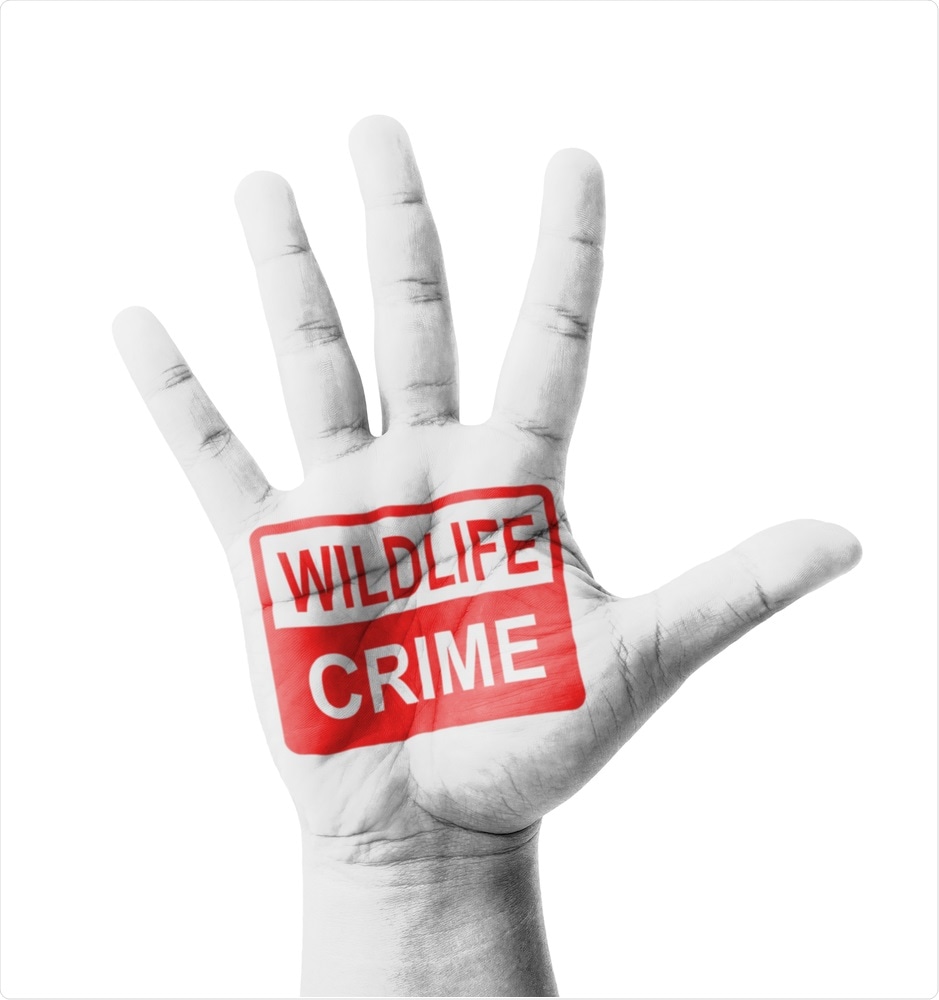My interest began with wildlife diseases. The first species I worked on was the rabbit. I was interested in the evolution of a rabbit virus which involved many different vectors and host-parasite evolution. That was my first disease, which of course is not zoonotic.
As I was working on diseases like this, we discovered that a number of the critically endangered species that we were trying to save around the world were being severely affected by novel diseases or parasites. The next disease I worked on was the parasitic infection of a critically endangered pigeon, the pink pigeon, in Mauritius. I had a Ph.D. student looking at that for several years, and we are still investigating it. That is a protozoan parasite.
Whilst we were doing the pink pigeon work in Mauritius, the parasite jumped to finches in the UK. Then it spread across Europe, and also jumped into the US to kill finches. It was an interesting coincidence that something that we were working on then became a major problem on the continent.
During the early 2000s, I was working on the illegal wildlife trade in Southeast Asia. When SARS hit in 2003, we just happened to have a Ph.D. student working on the conservation of civets in Vietnam. These were identified as a possible source of SARS-CoV, and we seemed to be the only people that knew anything about civets.
We emphasized at the time that we believed that the spillover to humans had not come from civets in civet farms. We said the spillover had probably occurred in the markets where these animals were being illegally sold, traded, and mixed. We also emphasized the need to screen these animals in the wild to see if they are carrying that virus in the wild, rather than before they enter the wildlife trade system.
I gave a talk about this research at the Royal Society ‘Emerging infections: what have we learnt from SARS?’ meeting back in 2004, where we highlighted the fact that SARS would happen again whilst the illegal wildlife trade was happening and different species which would not normally mix were mixing. Of course, pathogens occur naturally, but it was also a wildlife biodiversity crisis. The wildlife trade is actually a greater threat in Southeast Asia to biodiversity than deforestation currently.
Before the SARS-CoV-2 outbreak, we worked on H5N1 (highly pathogenic avian influenza) which was occurring throughout the region, and globally, it is still happening.
All this research has led to my interest. I have an interest in the impacts on both human health, but also on biodiversity.
Sir David Attenborough on the illegal wildlife trade | The Royal Society
Please can you give us some insight into the wildlife trade worldwide?
It is a global problem and it is particularly bad in Asia, especially China. The demand from that region for wildlife has meant that illegal trade is now bringing in animals from Africa and South America to Southeast Asia. Instead of decreasing, the illegal wildlife trade to Southeast Asia and China has increased since SARS-CoV. Animals that were not in the trade 15, 16 years ago are now heavily traded and have been brought to the brink of extinction.
But in Southeast Asia, there has been a shift from the consumption of wildlife at home. The hunter used to go out, kill an animal for our family meal and it would be eaten locally. There has been a shift from home consumption to selling those animals to illegal wildlife traders to get more money.
This trade was then associated with increased affluence. Some of these wildlife food restaurants in Southeast Asia were frequented by the middle class and wealthier people. This is not food to keep the family fed, this is a different kind of food. Some of this comes from alleged medicinal qualities. Everything from turtles to carnivores to snakes, all sorts of animals are consumed in that way.
In Africa however, it is slightly different. There is the bushmeat trade, and some of that really is to keep the family fed. However, some animals from Africa are going to China, as are animals from South America. The illegal wildlife trade is worldwide.
The wildlife trade also comes the other way through the demand for exotic pets from Europe, North America, and other countries. People want exotic snakes, other exotic reptiles, or monkeys, you name it. That is something else that needs to be banned. We need to be mindful that that is another form of wildlife trade; it is illegal and you get the same mixing of animals that normally would not come into contact with humans.
We carried out some work on the wildlife farms where they had been farming porcupines, in this case in Vietnam. The farmers claimed that these were farm-bred porcupines that are for the markets. But we were able to show that they were laundering wild-caught animals and then selling them onto other farms. They were not farm-bred, they were wild-captured. The farming of wildlife is something that needs to be stopped because it draws animals in from the wild.
Something that has come to our attention that I was not aware of is the extent of mink farming that we have seen. The UK stopped mink farming many years ago both for welfare issues and because the mink were escaping and devastating our own native wildlife. Fur farming is something that we also need to look at because we know that Mustelids like mink are really good hosts for coronavirus.
You should be careful of wooly hats with baubles on. Often they are sold as fake fur when in fact it is real fur. It is not mink, but it is probably a raccoon or something. It is the same with some of the jackets where you have got fur around the hood. You have to look really carefully at that fur because that could be real as well, especially if it is imported from China. I am told that it is cheaper to produce these items using real fur than fake fur, which says something about the amount of money that is spent on the welfare of those animals.
How is the wildlife trade threatening human health and biodiversity?
It is overexploiting populations. It is bringing previously common species to the brink of extinction in some cases. We all know about the trade of ivory and rhino horn, and tigers, but it is far bigger than that. It is the wildlife trade coupled with human consumption that means that these animal markets and restaurants have live animals, which people want to see killed in front of them because there is a belief that they are healthier than some of the livestock species available in that region.
That is because some of the intensive farming of livestock involves giving pharmaceutical drugs to the animals. We know that avian influenza was been associated with poultry farms, for example. Therefore, people would actually rather see a wild animal killed in front of them because they think it is healthier than a livestock individual that has been farmed. But in fact, it is incredibly dangerous.
As populations have been overexploited and wiped out in China, the trade has expanded. We now have similar markets and demand in countries like Vietnam, Thailand, Cambodia, the Philippines, and Indonesia. We called for a ban on wildlife trade back in 2004 to stop this from happening and we predicted that an outbreak would happen again in some form, but we did not think it would be SARS-CoV-2.
However, the good news is that back in January when the source was associated with the wildlife market in Wuhan, there was a temporary ban. Then they announced a permanent ban on wildlife trade and closed the markets and the wildlife farms including pangolins.
So China is doing the right thing, but the neighboring countries also need to do the right thing and ban the trade, because otherwise, it will continue. The problem with the current new legislation in China is that it excludes aquatic wildlife. That includes freshwater turtles, and tortoises, which are consumed in large numbers because of their alleged medicinal quantities, and so they are exempt, as are animals used in Chinese medicine.
We have to look very carefully at that because there is a biodiversity hotspot. There are huge numbers of species that only occur in that region, and so some of the tortoises and turtles are being lost before they have been named. When you lose a species, you lose all of the ecosystem functions that it performs. Be it pollination, seed dispersal or insect control, all sorts of important functions for ecosystems are lost, and ultimately, human health suffers.

Illegal Wildlife Trade. Image Credit: WICHAI WONGJONGJAIHAN/Shutterstock.com
You have stated that we need real change to stop the illegal trade of wild animals. What should governments be doing to help initiate this change?
I think we need to congratulate and support China with the international policing of the wildlife trade. There is a problem because a lot of it has gone online so that has to be monitored. There also has to be a real concerted global effort to stop the exploitation of animals within their natural habitats.
I think that these countries, China, in particular, has a duty of care to help fund the restoration. The conservation of the animals that have been brought to the brink of extinction, in other countries as well as in China, needs to be supported. We have got to think about how to bring back the animals, how to increase their numbers.
There need to be real changes in terms of actively conserving animals. It is not good enough just to stop the trade. We now have to promote and try to increase the populations of those that have been decimated worldwide.
What is meant by horizon scanning and how will this help us to avoid future pandemics?
Horizon scanning is where different countries fund programs and initiatives to screen wildlife to look for the pathogens that they are carrying. There was a large program like this called PREDICT funded by the US. However, the problem with these programs is that they have to understand that there are new viruses everywhere, and there are millions and millions of viruses yet to be discovered.
We have got a pretty good knowledge of the pathogens in the species that we eat regularly as livestock such as cows, pigs and poultry, and so on. But wildlife pathogens have been really understudied.
When you are horizon scanning, you have got to have ecologists who understand the ecology of animals of those species: their habit, their requirements, their breeding systems, and their home range. Do they migrate over long distances, for example? We also need to understand the likelihood that they might come into contact with people, in the absence of wildlife trade.
Therefore, it needs to be not just going out and screening animals for viruses, but actively understanding their ecology - where they live naturally, what they need. Some of these animals hibernate during much of the year. Are they colonial? All that affects the potential for spillover to other species.
It has to be holistic and about conserving species. There has been a lot of work recently in screening bats for coronaviruses in Southeast Asia. But there are many other sorts of coronaviruses out there. I think research has been bat-centric in the search for the origins of the viruses. Bats comprise about 20% of all mammals, and there are about 1,400 species of bats, but there are far more rodents, and those have been screened far less for diseases recently in these initiatives. I think it would be worth screening those.
In these wildlife markets, they actually consume the rat. So they are caught, they are skinned and you see these piles of skinned rats. I do not know whether there were any in the Wuhan market, because we never had a list of the species that were culled and removed, but those would be obvious species to screen.
People need to know what risks are associated with which species groups.
Do you believe that if policies were put in place to stop illegal trades, we would be able to better control and prevent future pandemics?
Yes, I do. I think China's done exactly the right thing to ban it, and that the rest of the world needs to support China. Whether it be with veterinary expertise or conservation biology expertise, we need to make sure that we ban illegal trading, because somebody is making a lot of money out of this, and it is not the hunters.
It is worth billions and billions of dollars. It is right up there with drug smuggling and people trafficking and those sort of illegal trade activities, but people do not know that. It needs to be stopped, and there needs to be a global effort because this is a virus that has literally stopped the world.
It has only taken 16 years for this second one to come and in the meantime, we have had avian influenza, which is still with us, and we have had Ebola. There has just been an outbreak of Ebola at the moment in CDR, Central Democratic Republic of Congo. Meanwhile, there are H5N1 outbreaks all over the place at the moment, including in Russia.
I think that infectious diseases and zoonotic infectious diseases in particular are something that we still have a lot to learn about. We have learned a lot about vaccines, but look what it has cost us in terms of lives. We cannot do this again.

Wildlife Trade. Image Credit: Jakkrit Orrasri/Shutterstock.com
What are the next steps in your research into diseases and the wildlife trade?
Well, we will be continuing with our research so watch this space. First and foremost I am a conservation biologist. But I am concerned that humans have destroyed so many ecosystems worldwide and so many species worldwide, and we need to be trying to restore those ecosystems and recover those species.
But at the same time, of course, we have got climate change and we know that climate change is changing, for example, the numbers of disease-carrying vectors. Therefore, certain vector-borne diseases are coming north into Europe, diseases which were not here before, both in animals and in humans.
This is the tipping point. I hope everybody saw David Attenborough's recent series and watched that last episode. It was a tough watch. But we have to look at this holistically, climate change is not separate from biodiversity conservation and it is not separate from human health. We need to realize that these are all interactive processes.
Where can readers find more information?
To read more about Professor Bell’s publications, click here: https://research-portal.uea.ac.uk/en/
About Professor Diana Bell
Diana Bell is a Professor of Conservation Biology in the School of Biological Sciences at UEA. Her research covers the risks from the wildlife trade and how this leads to human disease. She has worked on the origins of the COVID-19 virus, the SARS virus, and the H5N1 (Asian bird flu) virus.
More broadly, she is a conservation biologist with an interest in projects affecting many different wildlife species including (currently) hares, turtles, pink pigeons, and pangolins. She is running a citizen science project to explore the spread of a virus that has jumped from rabbits to hares and that is significantly increasing deaths among the 45 species of hare across the planet. She has also been looking at sustainable management of watershed habitats in very large cities – using Mexico City as a testbed.
Diana’s interests expand into all sorts of strategic planetary priorities related to climate change, biodiversity, over-exploitation of land, forests, and water, farming, and increases in animal parasites. She is a long-serving member of the International Union for Conservation of Nature’s Species Survival Commission, a Council Member of the World Land Trust, and a Director of Indo-Myanmar Conservation.